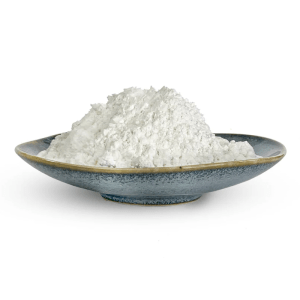Starch Sugar: Production and Applications in Food Industry
April 27, 2025 | News | No Comments

# Starch Sugar: Production and Applications in Food Industry
## Introduction to Starch Sugar
Starch sugar, also known as glucose syrup or corn syrup, is a sweetener derived from starch through enzymatic or acid hydrolysis. It plays a crucial role in the food industry due to its functional properties and versatility. This article explores the production process and various applications of starch sugar in food products.
## Production Process of Starch Sugar
The production of starch sugar involves several key steps:
1. Starch Extraction
The process begins with extracting starch from raw materials such as corn, wheat, potatoes, or cassava. The chosen source depends on regional availability and economic factors.
2. Liquefaction
The extracted starch is mixed with water and treated with alpha-amylase enzymes at high temperatures (90-110°C) to break down the long starch chains into shorter dextrin molecules.
3. Saccharification
During this stage, the liquefied starch is further broken down into simpler sugars using glucoamylase enzymes. The temperature is reduced to 55-60°C, and the pH is adjusted to optimize enzyme activity.
4. Purification
The resulting syrup undergoes filtration and ion exchange processes to remove impurities, proteins, and minerals, resulting in a clear, colorless liquid.
5. Concentration
The purified syrup is concentrated through evaporation to achieve the desired solids content, typically between 70-80%.
## Types of Starch Sugar
The food industry utilizes various types of starch sugar with different compositions and properties:
- Glucose Syrup: Contains varying proportions of glucose, maltose, and higher saccharides
- High Maltose Syrup: Rich in maltose with minimal glucose content
- High Fructose Corn Syrup (HFCS): Contains significant amounts of fructose produced through enzymatic isomerization
- Maltodextrin: A mildly sweet polysaccharide with low dextrose equivalent (DE)
## Applications in Food Industry
Confectionery Products
Starch sugar is widely used in candies, chocolates, and chewing gums. It prevents crystallization, improves texture, and enhances shelf life. In hard candies, it provides the desired chewiness and prevents sugar crystallization.
Bakery Products
In baked goods, starch sugar serves multiple functions:
- Enhances browning through Maillard reactions
- Improves moisture retention
- Acts as a humectant to maintain freshness
- Provides fermentable sugars for yeast activity
Keyword: Starch Sugar
Beverages
High fructose corn syrup is commonly used in soft drinks as a sweetener due to its high sweetness intensity and solubility. It blends well with other flavors and doesn’t mask the beverage’s taste profile.
Dairy Products
Starch sugar finds applications in ice cream, yogurt, and flavored milk products where it:
- Depresses the freezing point in ice cream
- Improves texture and mouthfeel
- Balances acidity in fermented dairy products
Processed Foods
Many processed foods utilize starch sugar as:
- A bulking agent
- A texture modifier
- A fermentation substrate
- A browning agent
</ul